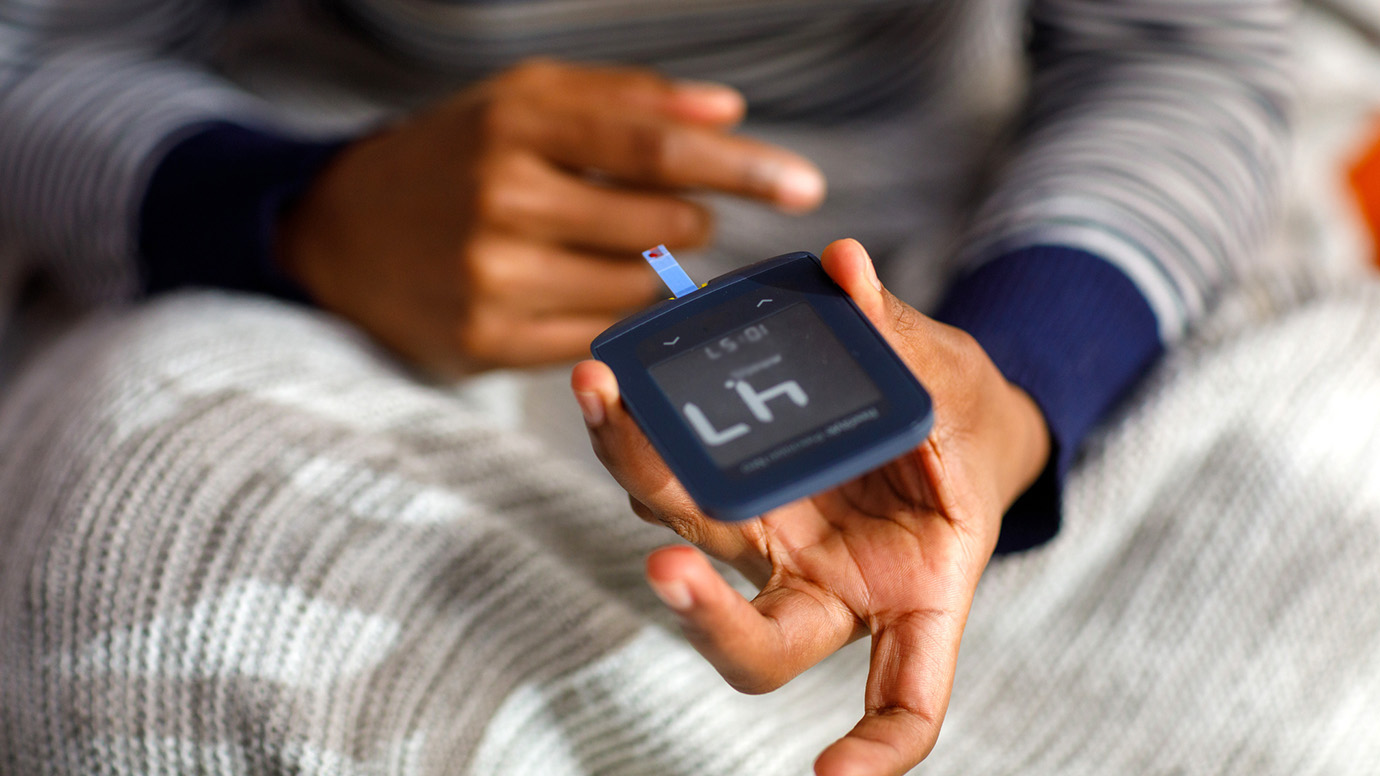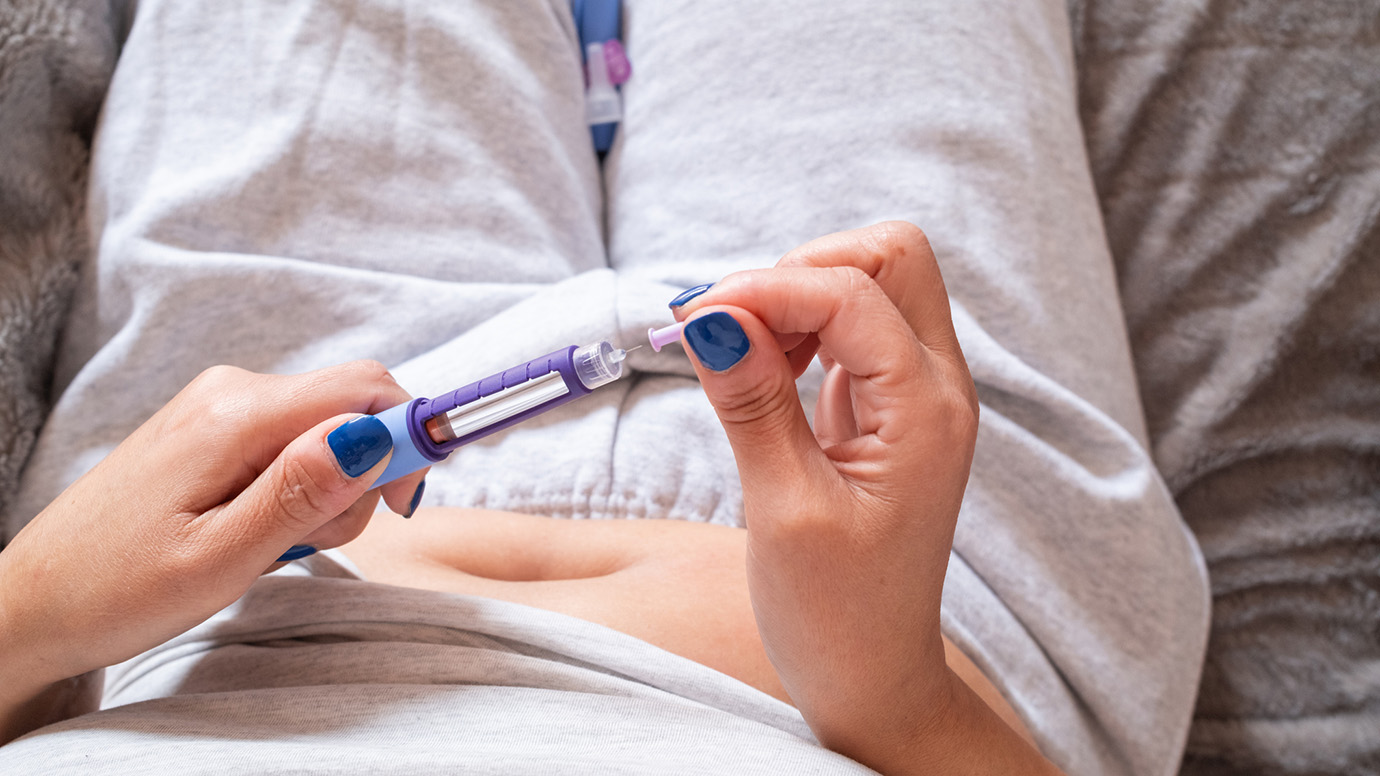Treating T1D in Rural India: Nityaasha Foundation’s Life-Saving Work
Written by: Farook Merchant, Founder & Trustee, Nityaasha Foundation
4 minute read
January 19, 2022
Editor’s Notes: Life for a Child supports young people living with diabetes in some of the world’s most vulnerable communities. In addition to the story shared below, read more about their work supporting young people like Rwandan sisters Ineza and Rebeka at ToClimbAThousandHills.org.
Until 2022, there have been wide gaps in the data about the incidence and impact of type 1 diabetes across the world. According to estimates from the type 1 diabetes (T1D) Index, more than 860,000 people live with type 1 diabetes in India, but more than 902,000 additional people would still be alive today if everyone had access to a timely diagnosis, vital diabetes supplies and management education. An average young person diagnosed at age 10 will lose an estimated 45 years of healthy life. Globally, there are an estimated total of 3.86 million people that would be alive today if everyone had equitable access to diabetes healthcare and tools. Learn more at T1DIndex.org.
A Solvable Problem
In 2013, we had a vision to provide medical aid to children coming from the economically weaker sections of society.
We met various doctors and medical leaders, namely noted pediatric endocrinologist Dr. Vaman Khadilkar and noted diabetologist Dr. C.S. Yajnik, who runs the diabetes research program in the KEM Hospital in Pune.
We learned that type 1 diabetes can be a debilitating disorder, often appearing in the pediatric age group that if not treated in time, can even result in the death of the child. But they also assured us that if the child is well looked after by a team of doctors and trained medical social workers, and has sufficient funds for medical treatment and management costs, then the child and the family can have a proper, normal life.
However, just giving the medicine and paying expenses is not enough; whoever takes the responsibility of these children’s care would have to make home visits and continuously train the patients and their caretakers, until the child was old enough to manage on their own.
Unique Obstacles
From the start, we wanted our program to focus on rural and urban children who live in dire financial conditions. Most of these families are illiterate and are either daily wage workers or farm hands. In many cases, both parents must work for their family to survive.
We also realized that we would have to educate the caretaker as the child is too young to understand.
In our region, there is another sad but serious social situation. Often when a young girl is diagnosed with type 1 diabetes, the father and his family would blame the girl’s mother and ask that the child be sent away to be looked after by the maternal grandparents. This is a very serious and unfortunate truth that we had to face—especially in rural areas where this kind of prejudice is more prevalent.
We understood very clearly that this is a critical medical condition and that our new Foundation will have to work closely with the consulting doctors. We would have to literally handhold the poor family with the afflicted child, to help them out of their denial and panic, and to begin organizing their lives around this reality.
Our Vision Realized
Nityaasha Foundation was established as a registered charitable trust in July 2013, with a vision to “provide an equal opportunity to all to cherish the gift of life” and mission to “bestow healthy life by fulfilling the medical needs of the underprivileged through holistic support.”
Located in Pune, Maharashtra, India, Nityaasha Foundation is dedicated to children with type 1 diabetes, between 0-23 years of age, from the economically weaker sections of the society. Our goal is to ensure these children are self-dependent and lead a normal, healthy and meaningful life.
As per our Mandate, to achieve these goals we:
PROVIDE free medical aid like insulin, strips, lancets, syringes, glucometers to our registered children along with diet & social counseling during center visits.
MONITOR closely the child’s health on a regular basis by periodic home visits, school visits, clinic and center visits and follow up calls. Monitoring plays a key role in managing such disorders.
EDUCATE and motivate the children and the eco-structure around them to deal with this disorder by conducting mentoring/motivational/diabetes educational sessions, spreading awareness and organizing various fun events.
We work closely with the main hospitals and doctors in Pune and identify economically needy patients and enroll them in our program.
Presently Nityaasha helps 130 type 1 children, out of which 70 percent of our children come from the rural areas. The children visit our center once every two months to collect medical aid after consulting their doctor. During their center visit, we thoroughly review the glucometer readings, glucose diaries, injection sites etc. to help them understand and follow proper regime. Social counselling is also done for children and their parents as they come from socially weaker and uneducated backgrounds.
Help From Abroad
We are very fortunate to partner with the organization Life for a Child, who believe that no child should die of diabetes. Established in 2000, the organization now supports over 34,000 young people living with type 1 diabetes in 45 countries. We could not reach nearly as many children as we currently do without their assistance.
Life for a Child provides us with educational materials for counselling and monitoring our children to help them manage their disorder for improved quality of their life, as well as medical supplies such as glucometers, strips, lancets and insulin which helped Nityaasha enroll many more needy children.
Additionally, during the Covid crisis, Life for a Child provided us with much needed rations for the families registered with Nityaasha Foundation.
And finally, the organization gave our children a platform to be recognized internationally with their drawing skills in their global art competition. We are eagerly awaiting the results!
An Unprecedented Situation
When the entire world went under lockdown during the COVID-19 pandemic, we knew that despite everything, we still needed to ensure that the medical aid reaches the doorsteps of our beneficiaries.
With all the streets strictly locked down in Pune, Nityaasha Foundation staff & medical social workers were available 24X7 for continuous monitoring and counselling on telephone.
Nityaasha’s aim was to see that no child suffered due to unavailability of medical aid, and our volunteers distributed the necessary medical aid to all the children at their doorstep—including those in remote rural areas.
Looking Ahead to the Future
Nityaasha Foundation would like to spread its program to more and more rural areas in and around Pune, and in future to other parts of India. The program is well established and with the right combination of donors, doctors and medical social workers, Nityaasha Foundation would like to be an active player in growing this movement.
We feel that with organizations like Life for a Child and Nityaasha Foundation, the awareness of type 1 diabetes should continue to spread globally. There should be no area in the world where any child dies due to this ailment. There should be no location where medical aid, education and guidance to the families of children living does not reach. Assistance from doctors to identify children from these areas would help us achieve our target.
Click here to donate to Life for a Child so they can continue to support Nityaasha Foundation and other organizations like them around the world.

Author
Farook Merchant, Founder & Trustee, Nityaasha Foundation
Farook Merchant, chairman and managing director, Messung Group of Companies, is an innovator credited with discovering the first Programmable Logic Controller in India. Mr. Merchant is a successful entrepreneur who built Messung from a one man company to a 500-member team with national presence and global collaborations.
Related Resources

If you have diabetes, you know insulin affects low blood sugar (hypoglycemia), but it’s not...
Read more

Living with diabetes, you know that low blood sugar can be dangerous and needs quick...
Read more

At just 17, Collin Lloyd is making a name for himself in karting—on and off...
Read more

